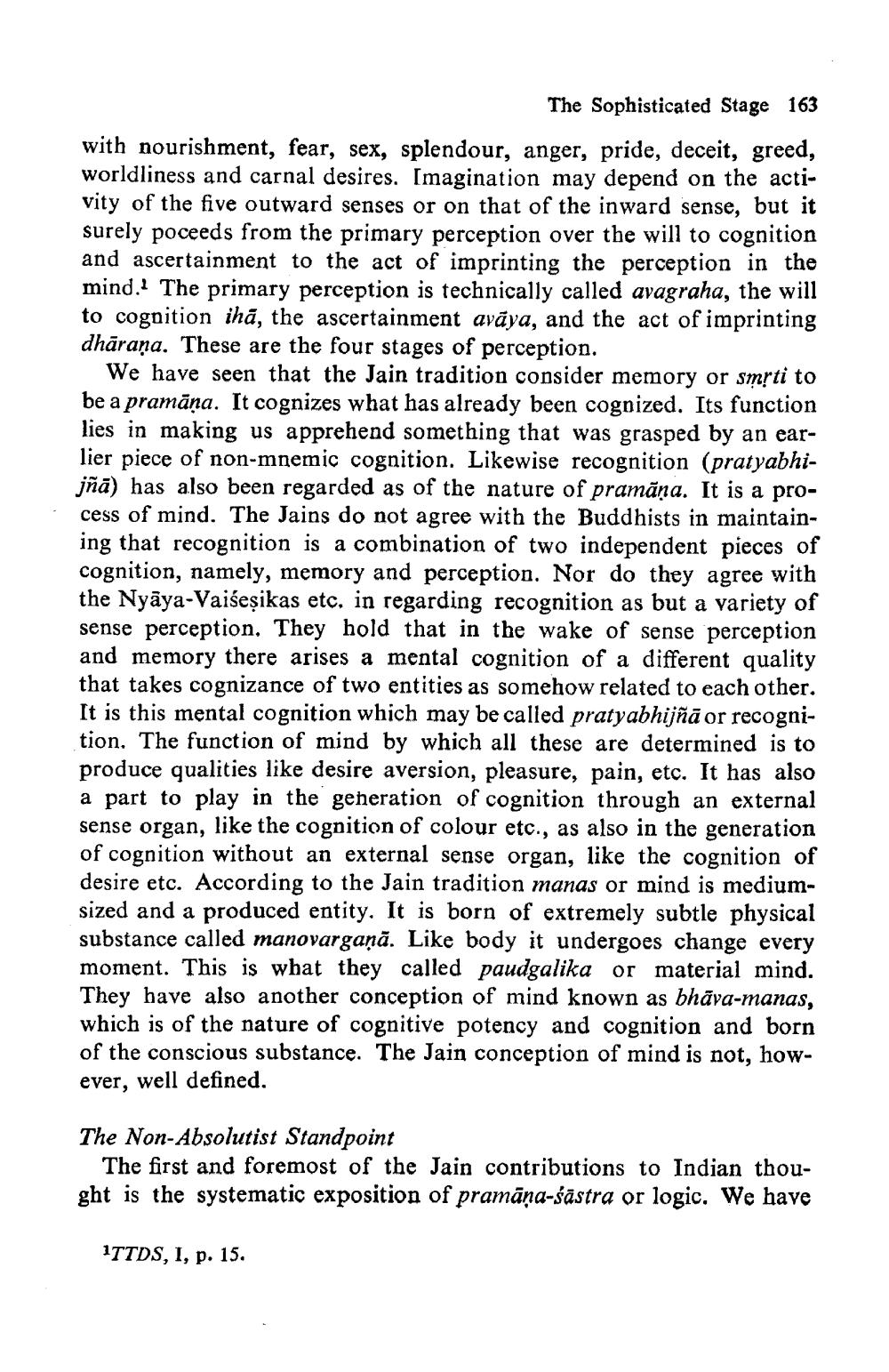________________
The Sophisticated Stage 163 with nourishment, fear, sex, splendour, anger, pride, deceit, greed, worldliness and carnal desires. Imagination may depend on the activity of the five outward senses or on that of the inward sense, but it surely poceeds from the primary perception over the will to cognition and ascertainment to the act of imprinting the perception in the mind. The primary perception is technically called avagraha, the will to cognition ihā, the ascertainment avāya, and the act of imprinting dhāraṇa. These are the four stages of perception.
We have seen that the Jain tradition consider memory or smrti to be a pramāņa. It cognizes what has already been cognized. Its function lies in making us apprehend something that was grasped by an earlier piece of non-mnemic cognition. Likewise recognition (pratyabhijñā) has also been regarded as of the nature of pramāna. It is a process of mind. The Jains do not agree with the Buddhists in maintaining that recognition is a combination of two independent pieces of cognition, namely, memory and perception. Nor do they agree with the Nyāya-Vaišeșikas etc. in regarding recognition as but a variety of sense perception. They hold that in the wake of sense perception and memory there arises a mental cognition of a different quality that takes cognizance of two entities as somehow related to each other. It is this mental cognition which may be called pratyabhijñā or recognition. The function of mind by which all these are determined is to produce qualities like desire aversion, pleasure, pain, etc. It has also a part to play in the generation of cognition through an external sense organ, like the cognition of colour etc., as also in the generation of cognition without an external sense organ, like the cognition of desire etc. According to the Jain tradition manas or mind is mediumsized and a produced entity. It is born of extremely subtle physical substance called manovargaņā. Like body it undergoes change every moment. This is what they called paudgalika or material mind. They have also another conception of mind known as bhāva-manas, which is of the nature of cognitive potency and cognition and born of the conscious substance. The Jain conception of mind is not, however, well defined.
The Non-Absolutist Standpoint
The first and foremost of the Jain contributions to Indian thought is the systematic exposition of pramāņa-śāstra or logic. We have
1TTDS, I, p. 15.




